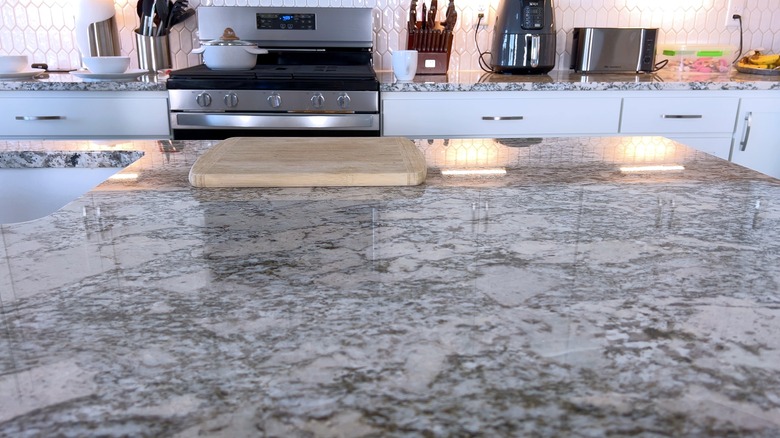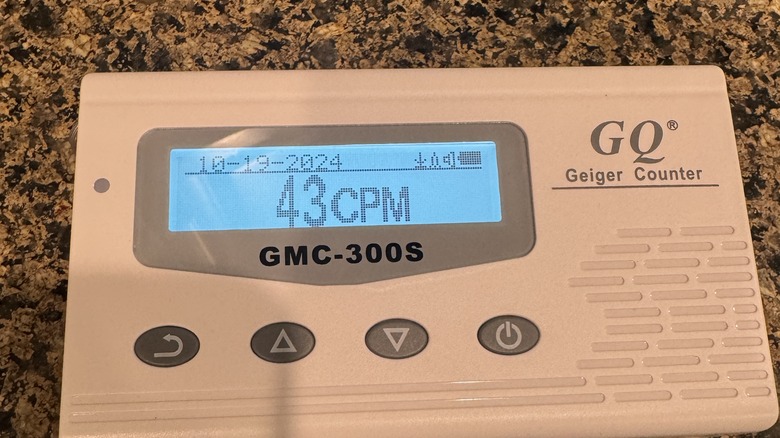Granite Countertops May Have A Radioactive Consequence. Here's What We Know
If you're trying to decide on the best countertop material for your home, you've likely done your research on granite — a natural stone often used in countertop slabs. And in your research, you may have come across a scary hidden downside to granite countertops: they likely emit a dose of radiation. You're right to be alarmed at the findings, given the well-known devastating health effects of radiation. But is a granite countertop really such a huge threat to health?
In most cases, your granite countertop is unlikely to pose a major health risk. Virtually all types of stone we dig up from the earth emit some radiation. That said, granite tends to contain more radioactive elements, like uranium and thorium, because it lends itself well to these elements' crystallization process. These elements decay as time goes by, and the decay process releases radon — a radioactive and extremely harmful carcinogenic gas that you can't see or smell. Granite may also emit beta and gamma radiation. Beta radiation is the kind that can burn your skin, whereas its gamma cousin can kill you outright in high enough doses. Did we put your mind at ease yet?
As scary as it sounds, the radiation exposure you get from a granite countertop is, in most cases, in line with the background radiation we're subject to on a daily basis. Background radiation is the natural, unavoidable exposure you get to radioactive elements, and is nothing to worry about. That said, some granite slabs do emit more radiation than normal, and it doesn't hurt to find out if yours does, too.
Why testing your granite countertop for radiation may be a wise move
As we said above, the radiation exposure you get from a typical countertop is similar to your natural exposure to the stuff. Whenever you're outdoors, indoors, eating, or simply breathing, you're getting a daily dose of ionizing radiation from the earth's crust and cosmic radiation that gets through the atmosphere. There's nothing you can do about it. Heck, even our own bodies produce radiation. These natural processes expose you to about 310 milirems (mrem) of radiation per year. Medical imaging, nuclear medicine, and certain occupations double the dosage, so the average amount of radiation a person in the U.S. receives annually is about 360 to 620 mrems, or 0.04 to 0.07 mrem per hour.
Now, the average radiation quantity emitted by a granite countertop is 0.3 to 0.4 mrem per hour. It sounds like a lot, but you don't spend the entire day next to the countertop. Let's say you use the countertop for one hour a day; your additional exposure would be about 110 to 146 mrem annually. That's just a tiny bit over the U.S. Nuclear Regulatory Commission's recommendation of 100 mrem above the background radiation levels for the general public.
But what if you use the countertop for far longer periods or the slab emits more than the 0.3 to 0.4 mrem/hour average? It's possible, and if you're concerned, the best thing to do is test the countertop before you install it. If a home radon testing kit flags above-normal radiation levels, it's best to have a professional assessment of the radon levels present in the home. Even if your granite countertop is not responsible, at least you'll learn that it's time to protect your home and prevent radon exposure.

